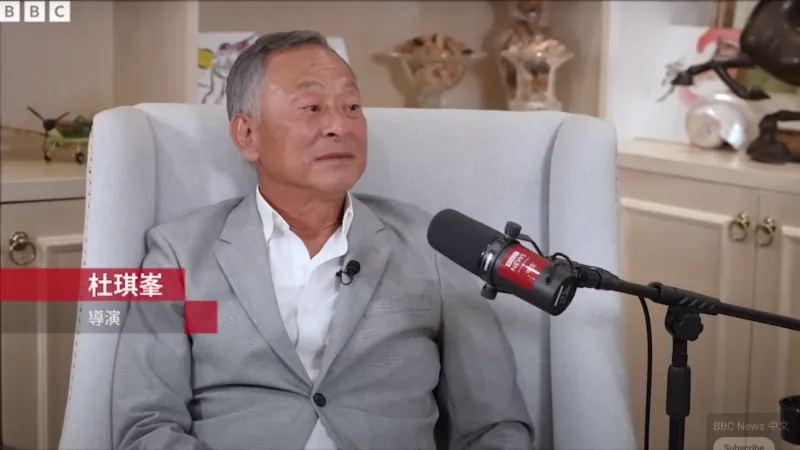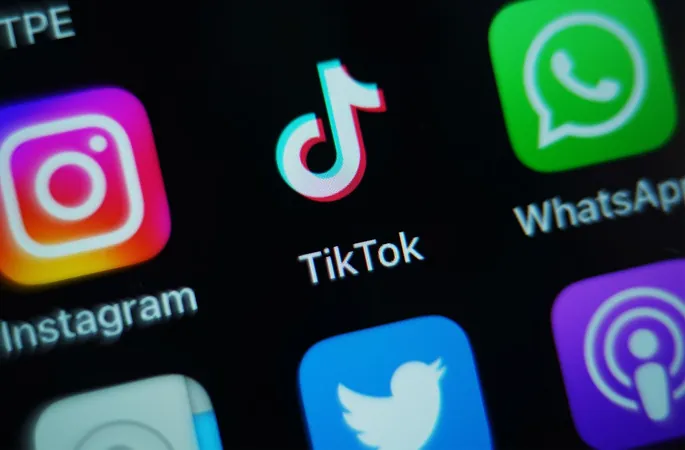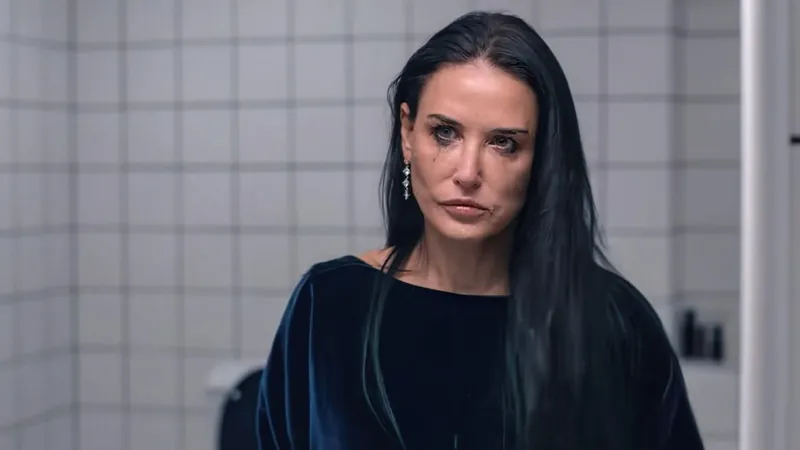
Controversy Erupts as Hong Kong Filmmaker Johnnie To Decries City’s ‘Soul’ in BBC Interview
2024-11-07
Author: Ken Lee
In a recent interview with BBC News Chinese, renowned Hong Kong filmmaker Johnnie To has sparked significant backlash after expressing his belief that the city lacks ‘soul’ and freedom of speech. His comments, which came during a 51-minute discussion on various topics related to the film industry, have ignited sharp criticism from pro-Beijing media outlets.
Two days after the airing of the interview on November 2, 2024, the state-backed newspaper Ta Kung Pao published an editorial condemning To’s remarks. The editorial criticized him for oversimplifying the challenges facing Hong Kong's film industry and labeled his comments as "unfair" to local filmmakers. To's assertion that the city no longer possesses a ‘soul’ was particularly contentious, with the editorial arguing that recent films continue to illustrate the vibrant narrative landscape of Hong Kong society.
In his interview, To referred to his ongoing creative stagnation, proclaiming that he had hit "the lowest point in life" due to the "impact of the environment." When pushed for clarity, his response was vague, reflecting a profound disillusionment. "I think you know better than I do," he quipped, suggesting a shared understanding of the socio-political climate impacting artistic expression in Hong Kong.
To emphasized his dedication to making films in Hong Kong, stating, “I have always insisted on filming in Hong Kong. In fact, Hong Kong is very important to me." However, he lamented the loss of fundamental liberties, particularly freedom of speech and human rights, which he feels are integral to the city’s identity.
The international spotlight on his comments became even more pronounced when he discussed the Fresh Wave International Short Film Festival, which he founded nearly two decades ago to nurture budding artists. Despite recent cuts to the festival’s funding from the Hong Kong Arts Development Council, To vowed to continue supporting the initiative. He argued that the funding cuts reflected an alarming lack of confidence from the authorities in their citizens.
To's insights drew a mix of support and criticism from the public. The interview garnered over 820,000 views on YouTube within days, with many viewers commending To for his bravery in articulating what they perceived as the harsh truth of the current situation. Conversely, the responses from Ta Kung Pao and another Beijing-backed outlet, Wen Wei Po, staunchly defended the existing film industry's creative vitality, arguing that it remains unaffected by political pressures.
Prominent figures in the Hong Kong film realm, such as director Wong Jing, weighed in on the debate, claiming that 90% of To’s past films would still be feasible under current conditions, with only a minority facing censorship due to potentially ‘sensitive’ themes. This contrasts with reports since the enforcement of the national security law in 2020, which have indicated increasing instances of filmmakers being pressured to alter their content.
Johnnie To’s candid reflection on his craft amid an evolving political landscape strikes a chord, raising questions about the intersection of creativity, censorship, and identity in modern Hong Kong. As the debate continues, the artistic community faces an uncertain future, with many viewers eager to see just how far filmmakers can push the boundaries in a city teetering on the edge of creative expression and political restraint.
Stay tuned for updates as this story unfolds in a city where the essence of its cinematic vitality hangs in the balance.



 Brasil (PT)
Brasil (PT)
 Canada (EN)
Canada (EN)
 Chile (ES)
Chile (ES)
 España (ES)
España (ES)
 France (FR)
France (FR)
 Hong Kong (EN)
Hong Kong (EN)
 Italia (IT)
Italia (IT)
 日本 (JA)
日本 (JA)
 Magyarország (HU)
Magyarország (HU)
 Norge (NO)
Norge (NO)
 Polska (PL)
Polska (PL)
 Schweiz (DE)
Schweiz (DE)
 Singapore (EN)
Singapore (EN)
 Sverige (SV)
Sverige (SV)
 Suomi (FI)
Suomi (FI)
 Türkiye (TR)
Türkiye (TR)